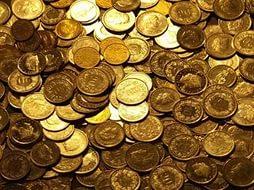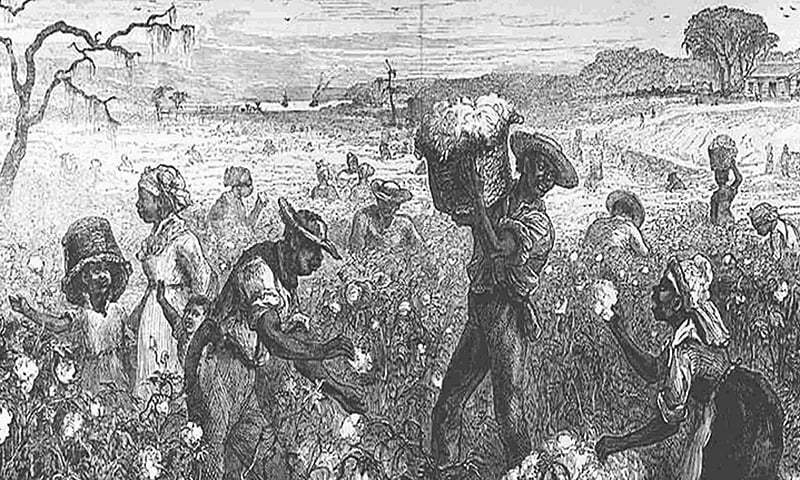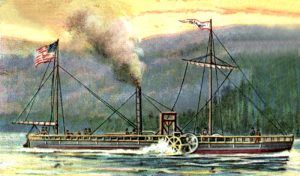The Second American Revolution

This theme was the basis of James Madison's war message to Congress on June 1, At the turn of the 20th century, much of the contemporary scholarship re-evaluated this explanation and began to focus more on non-maritime factors as significant contributing causes as well. However, historian Warren H. Goodman warns that too much focus on these ideas can be equally misleading.
Juneteenth and the Second American Revolution
He says that scholars agree that the United States went to war "because six years of economic sanctions had failed link bring Britain to the negotiating table, and threatening the Royal Navy's Canadian supply base was their last hope". Maass agrees that The Second American Revolution might have tempted Americans on a theoretical level, but he finds The Second American Revolution "leaders feared the domestic political consequences of doing so", particularly because such expansion "focused on sparsely populated western lands rather than the more populous eastern settlements".
However, Maass accepts that many historians continue to believe that expansionism was a cause. He notes that it was considered key to maintaining sectional balance between free and slave states thrown off by American settlement of the Louisiana Territory and widely supported by dozens of War Hawk congressmen such as Henry Clay, Felix Grundy, John Adams Harper and Richard Mentor Johnson, who voted for war with expansion as a key aim.
However, Horsman states that in his view "the desire for Canada did not cause the War of " and that "The United States did not declare war because it wanted to obtain Canada, but the acquisition of Canada was viewed as a major collateral benefit of the conflict".
A few Southerners opposed this, fearing an imbalance of free and slave states if Canada was annexed. Anti-Catholicism also caused many to oppose annexing the mainly Catholic Lower Canada, believing its French-speaking inhabitants unfit "for republican citizenship". Notable American generals modular vs integrated software systems as William Hull issued proclamations to Canadians during the war promising republican liberation through incorporation into the United States.
General Alexander Smyth similarly declared to his troops when they invaded Canada that "you will enter a country that is to become one of the United States.

You will arrive among a people who are to become your fellow-citizens". That is not to say that expansionist aims would not potentially result from the war".

They argue that the "enduring debate" is over the relative importance of expansionism The Second American Revolution a factor, and whether "expansionism played a greater role in causing the War of than American concern about protecting neutral maritime rights". While these authors approached the origins of the war from many perspectives, they The Second American Revolution conceded that British maritime policy was the principle cause of the war. Risjord notes, a powerful motivation for the Americans was their threatened sense of independence and the desire to uphold national honour in the face of what they considered British aggression and insults such as the Chesapeake—Leopard affair. Brands writes: "The other war hawks spoke of the struggle with Britain as a second war of independence; [Andrew] Jackson, who still bore scars from the first war of independence, held that view with special conviction.
The approaching conflict was about violations of American rights, but it was also about vindication of American identity". The First Barbary War had resulted in an apparent victory but with the continued payment of ransoms. The Quasi-War against the French had involved single ship naval clashes over trade rights similar to the ones about to occur with Britain.

Upholding national honour and being able to protect American rights was part of the background to the US political and diplomatic attitudes towards Britain in the early s. At the same time, the British public were offended by what they considered insults, such as the Little Belt affair.
Customer reviews
This gave them a particular interest in capturing the American flagship Presidentan act that they successfully realized in Impressment, trade, and naval actions Britain was the largest trading partner of the United States, receiving 80 percent of American cotton and 50 percent of all other American exports. The British public and press resented the growing mercantile and commercial competition. The Rule ofThe Second American Revolution the US had temporarily agreed to when signing the Jay Treatystated that a neutral nation could not conduct trade with an enemy, if that trade was closed to them before hostilities had commenced.
These actions were challenged in The Second American Revolution Essex case of The Monroe—Pinkney Treaty offered the US preferential trading rights, and would have settled most its issues with Britain but did not moderate the Rule of and only offered to exercise "extreme caution" and "immediate and prompt redress" with regard to impressment of Americans.
Jefferson, who had specifically asked for these two points to be extirpated, this web page to put the treaty before the senate.
Donate – Get Emails From RDS
The British responded in with Orders in Council which similarly forbade any shipping to France. US—French relations had soured so much, that byMadison was also considering war with France.

To overcome this shortfall, British seamen were recruited, who were attracted by the better pay and conditions. Since the Quota System had been in use to feed men to the navy but it was not alone sufficient.]
The Second American Revolution Video
MOOC - The Second American Revolution - The Civil War and Reconstruction, 1861-1865 - 2.6.4Site: The Second American Revolution
| The Second American Revolution | 1 day ago · Revolution: Second-Wave Feminism And The Rewriting Of American Sexual Thought, To Download, Read Online Books Desiring Revolution: Second-Wave Feminism And The Rewriting Of American Sexual Thought, To For Free Without Downloading Download Desiring Revolution: Second-Wave Feminism And The Rewriting Of American Sexual Thought. George Washington (February 22, – December 14, ) was an American political leader, military general, statesman, and Founding Father of the United States, who served as the first president of the United States from to Washington led the Patriot forces to victory in the American Revolutionary War, and presided at the Constitutional Convention of , which established the. 21 hours ago · In the 18th Century, the British considered themselves subjects, not citizens. I point out that rather minor correction only because it goes to a larger issue which is that British subjects at that time did not question or second guess the king. T. |
| The Second American Revolution | George Washington (February 22, – December 14, ) was an American political leader, military general, statesman, and Founding Father of the United States, who served as the first president of the United States from to Washington led the Patriot forces to victory in the American Revolutionary War, and presided at the Constitutional Convention of , which established the. The British Empire was composed of the dominions, colonies, protectorates, mandates, and other territories ruled or administered by the United Kingdom and its predecessor states. It began with the overseas possessions and trading posts established by England between the late 16th and early 18th centuries. At its height it was the largest empire in history and, for over a century, was the. The War of (18 June – 16 February ) was a conflict fought between the United States and its allies, and Great Britain and its dependent colonies in North America and its allies. Many Indigenous peoples fought in the war on both sides. Additionally, Great Britain was allied at the time with Spain against France and its powerful military under Napoleon, and thus Spain supported. |
| Gawker parody site emerges to skewer startup cliches | Mobster john fogerty |
The Second American Revolution - all
Further information: Washington family and British America Ferry Farm , the residence of the Washington Family on the Rappahannock River The Washington family was a wealthy Virginia planter family that had made its fortune through land speculation and the cultivation of tobacco. He was a talented draftsman and map-maker. By early adulthood he was writing with "considerable force" and "precision"; [19] however, his writing displayed little wit or humor. In pursuit of admiration, status, and power, he tended to attribute his shortcomings and failures to someone else's ineffectuality. Fairfax became Washington's patron and surrogate father, and Washington spent a month in with a team surveying Fairfax's Shenandoah Valley property. Virginia's lieutenant governor, Robert Dinwiddie , appointed George Washington as a major and commander of one of the four militia districts. The British and French were competing for control of the Ohio Valley. While the British were constructing forts along the Ohio River, the French were doing the same—constructing forts between the Ohio River and Lake Erie.![[BKEYWORD-0-3] The Second American Revolution](https://www.thoughtco.com/thmb/TTwZR9i8sPZ4j26eKa8_QSm0BBs=/1024x690/filters:fill(auto,1)/illustration-of-alexander-hamilton-and-aaron-burr-preparing-to-duel-514887734-29fc7f971159463f90cc66b1133c525a.jpg) The Second American Revolution.
The Second American Revolution.

ethological attachment theory
2022-03-04
Toshakar
I confirm. So happens. We can communicate on this theme.

Category
Best Posts
- The Biggest Crisis We Face Today Human
- literature essay writer
- tuskegee experiment summary
- elizabethan crimes
- research paper online
- marketing analysis mayo clinic
- International Travel Can Be Very Influential
- majestica hotel shanghai
- The Importance Of Machine Guns In World War One
- paraphrase my essay
- Personal Narrative: An Interview With A Child With Tyrese
- Gender Gap Between Men And Women
- essay writing service
- Racism In To Kill A Mockingbird By
- Anthem For Doomed Youth Analysis






 398
398